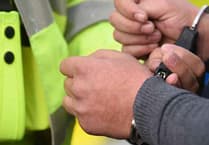Snowdonia Aerospace Centre in Llanbedr is hoping to be at the forefront of groundbreaking technology after being granted approval for drone testing.
Snowdonia Aerospace LLP has announced that the Snowdonia Aerospace Centre has become one of only two pre-assessed test sites in the UK approved by the Civil Aviation Authority (CAA) for beyond visual line-of-sight (BVLOS) drone testing.
To obtain CAA Pre-assessed test site status, the vicinity of the centre underwent a completely independent process where the risk to other aircraft (air risk) and people and property (ground risk) was appraised, and a baseline level of safety ensured.
This means that UAS operators can use the centre to streamline their applications process for a UK SORA-based Operational Authorisation (OA).
The Pre-assessed Test Site process is part of a £20m UK government initiative announced in April 2025 to support the integration of drones and flying taxis into the country’s aviation network.
Jeremy Howitt, Technical Director for the Snowdonia Aerospace Centre, said “The Snowdonia Aerospace Centre has long been at the forefront of novel aerospace development in the UK, and we’re really pleased that now we can offer a streamlined application process and get more drone operators flying sooner in our unique test environment. We look forward to supporting the next generation of innovators in this exciting new technology area.”
The CAA, Department for Transport (DfT), and the newly established Regulatory Innovation Office (RIO) at the Department for Science, Innovation and Technology (DSIT) are trying to simplify regulatory processes to facilitate the commercialisation of these emerging technologies. Many organisations, in the UK and globally, are developing novel drones, advanced air mobility vehicles and zero-carbon regional aircraft. These novel aircraft will enable the creation of new markets worth over US$675 billion by 2050.
The CAA approval follows the successful launch of the Snowdonia Space Centre in May 2025, which provides early and low-cost access to state-of-the-art testing facilities enabling companies to accelerate the development of new products and technologies.
It features a purpose-built laboratory with cutting-edge testing equipment, a rocket engine test stand and two launch rails, as well as a flight test range for trialling and researching various modes of space flight such as rocket-powered vehicles and near-space scientific flights. The test site status cements the centre’s status as a leading aerospace hub for the UK.
Snowdonia Aerospace will also lead a project called Dragon’s Heart which aims to develop drone solutions for the Welsh Ambulance Service and Welsh Blood Service.
Dragon’s Heart will include test flights at Snowdonia Aerospace Centre to develop a system which is fully automated and safety-assured, using cutting edge technology that will enable drones to autonomously detect threats and reroute to safely avoid them mid-flight.
Mr Howitt added: “Our project can refine the technical application of the concept, by integrating autonomous flight guidance software, a novel ground-based surveillance radar and medical delivery drone – that together promise safety and responsiveness for unmanned drones travelling through our network to make Wales ‘drone-ready’.”
The project will also see prototype vertiports unveiled at the Welsh Blood Service headquarters in Talbot Green, and at its northern stock-holding unit in Wrexham.



.jpeg?width=209&height=140&crop=209:145,smart&quality=75)

Comments
This article has no comments yet. Be the first to leave a comment.